“I would've given anything for these opportunities when I was a kid”: The growth of girls' football
As the government pledges to eliminate the gender disparity in school football, many people are proud of the progress currently seen in the sport.
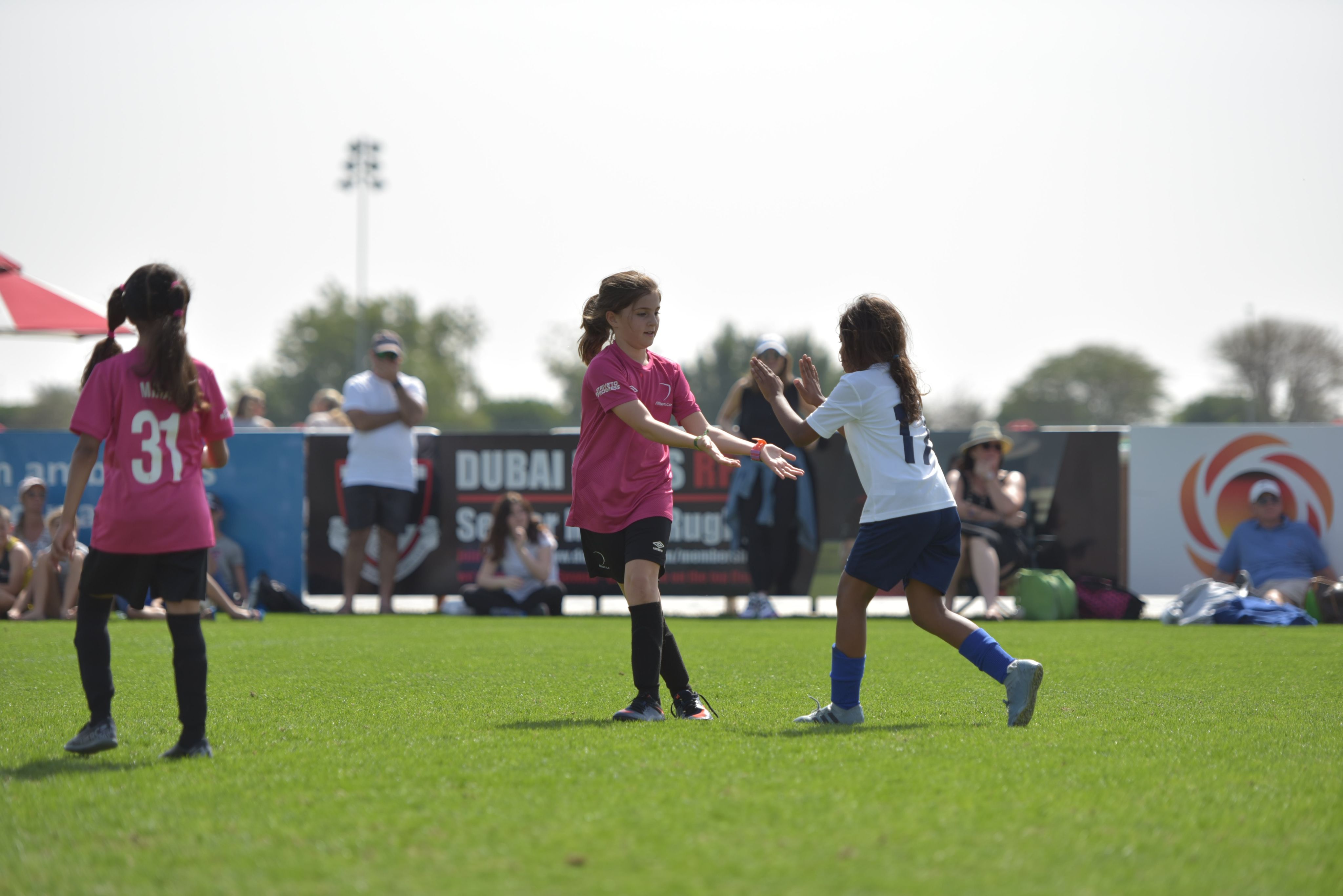
On International Women’s Day, Rishi Sunak pledged to introduce measures which will offer girls the same opportunities as boys for football at school. This momentous shift resulted from the Lionesses' legacy campaign, which aimed to create a future in which girls could play football without stigma.
"This commitment on a governmental level is great," says Helen Rutter - who founded a local girl's football team called Bradwell Heroines for her daughter and friends.
"However, the sport has already seen so much growth for girls in recent years - so this means it can only get better."

Only 67% of all schools and 41% of secondary schools currently offer football equally to girls and boys in PE lessons. The new measure strives to close this disparity completely and England Football aims for at least 75% of all schools to offer equal sporting chances by 2024.

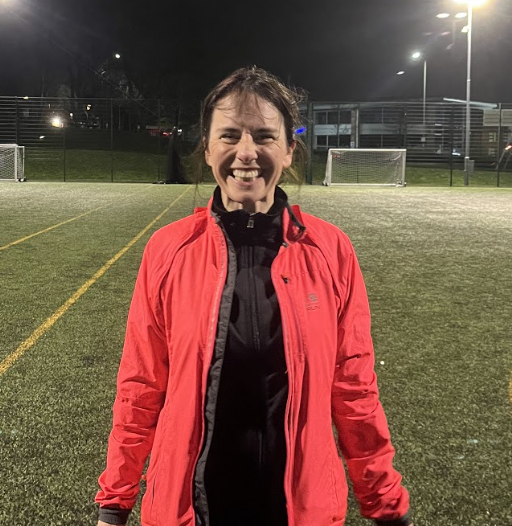
Helen Rutter also plays friendly football. Photo: Aneesa Ahmed
Helen Rutter also plays friendly football. Photo: Aneesa Ahmed
"You can't say it's 'just a bunch of girls' if you're losing to them."
Nonetheless, data pre-dating the Lionesses' Euros victory, collected by Sport England, already showed an increased uptake of girls playing football - both inside and outside of school. The survey found that 669,000 girls played football in a formal setting in 2017-18, but by the end of the academic year 2020-2021, that figure had climbed to 777,000. There was also a 200,000 increase in the number of girls playing football in informal settings - such as a kickabout in the park.
Efforts are being made nationally, by those passionate about their girls partaking in football, to create more out-of-school activities. Helen Rutter formed a girl's football team for her daughter and friends in her area's local junior league, Derwent Valley League.
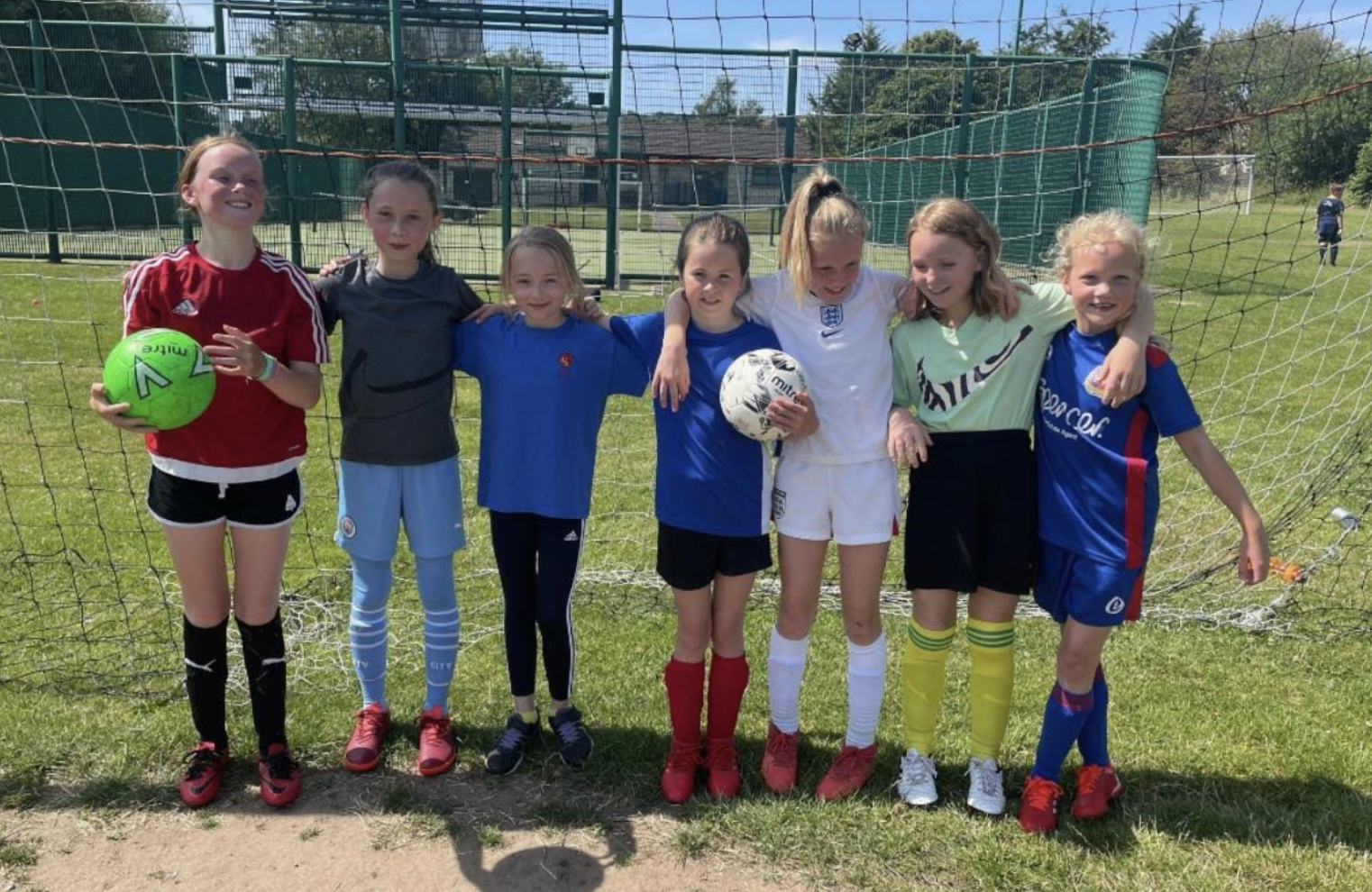
The Bradwell Heroines. Photo: Helen Rutter
The Bradwell Heroines. Photo: Helen Rutter
The team was created out of a desire to create a safe space for girls to play and improve at the game, while still participating with the boys. Helen explains how the girls can sometimes face misogyny on the pitch, and aren't taken seriously by the boys. This is something the Bradwell Heroines are changing. As interest in the newly formed football team grows, Helen is now considering making a separate girls-only league within the Derwent Valley League.
These endeavours to create more inclusive football opportunities are being celebrated and praised by many, especially those who did not have them when they were younger. 23-year-old Megan Townsend, who currently plays for her local side Nuneaton Borough Ladies Development, says she wishes she had the opportunities during the early 2010s that the girls of today have.
She says: “The onus was on my school for not realising that there was such an inequality between girls and boys in football, and they should have done something about it.
“We weren’t offered the same opportunities, so I would’ve given anything for these types of opportunities when I was a kid.”
Her secondary school’s lack of attention to girls interested in football was a "contributing factor" to Megan failing her GCSE PE.
"The onus was on my school for not realising that there was such an inequality between girls and boys in football."
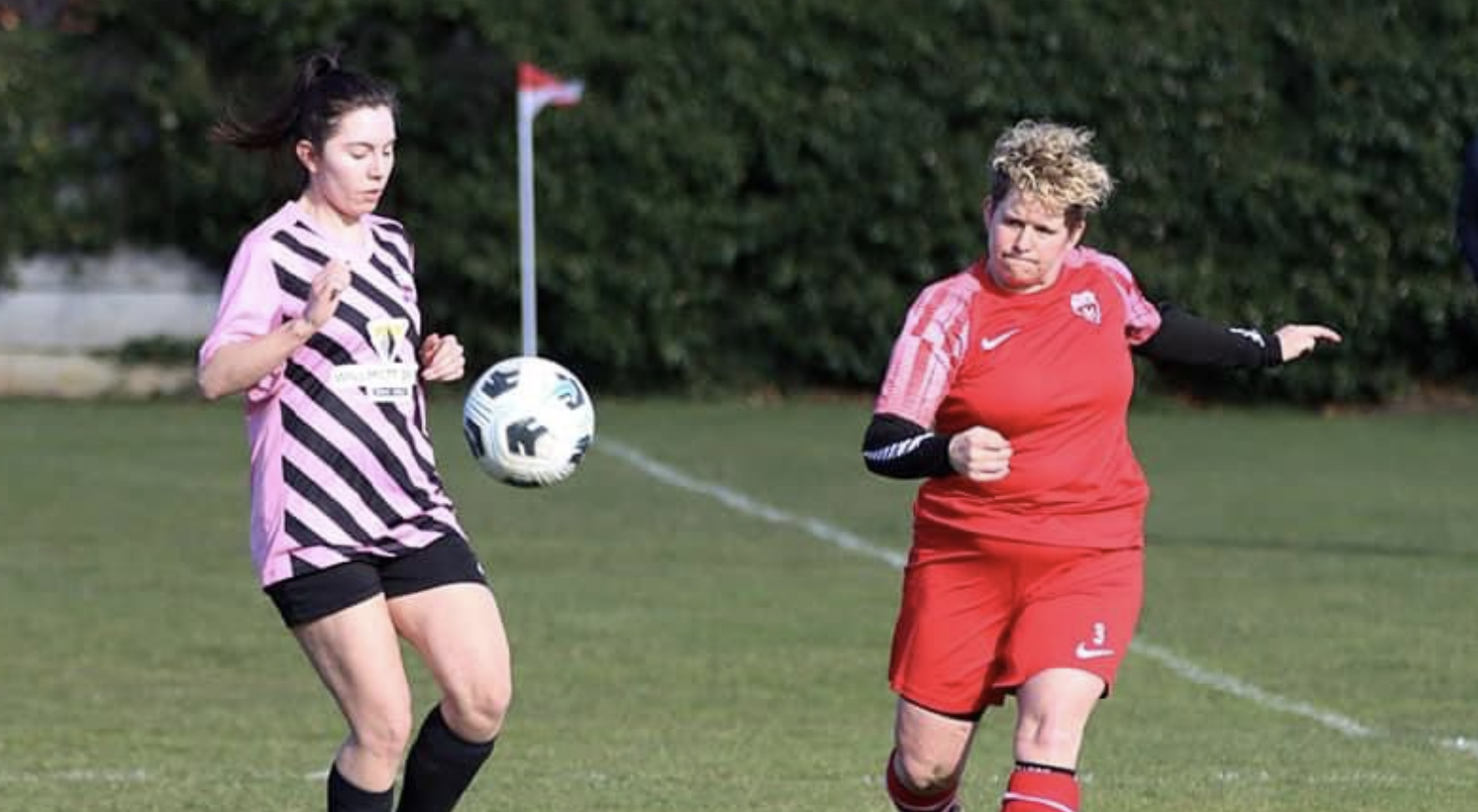
Megan Townsend (pictured left) playing for Nuneaton Borough Ladies. Photo: Mike McSharry
Megan Townsend (pictured left) playing for Nuneaton Borough Ladies. Photo: Mike McSharry
Similarly, Rakiya Abdulah saw a gendered divide in the sports offered by their secondary school to girls and boys. They grew up in London in the 2000s and 2010s and enjoyed football during primary school. But, they were dissuaded from the sport during secondary school. “At [secondary] school, football was for the boys and sports like volleyball and netball were for the girls,” they said. “There was a clear divide, and the culture at school heavily played into that.”
"There was a clear divide, and the culture at school heavily played into that"
Yet ultimately, it was societal stigmas and prejudices held by their parents that had stopped them from playing the sport. Rakiya believes having a bigger push for football in schools and in after-school clubs will normalise girls playing football in different communities.
Rakiya also believes the victory of the Lionesses has set the precedent for football being a feasible career path or a successful hobby - something which may have acted as a barrier for parents in the past.
“Often kids, especially girls from immigrant backgrounds, are discouraged from taking a path that isn’t seen as a viable option for the future - so I think these types of attitudes are changing, thanks to the Lionesses,” says Rakiya.
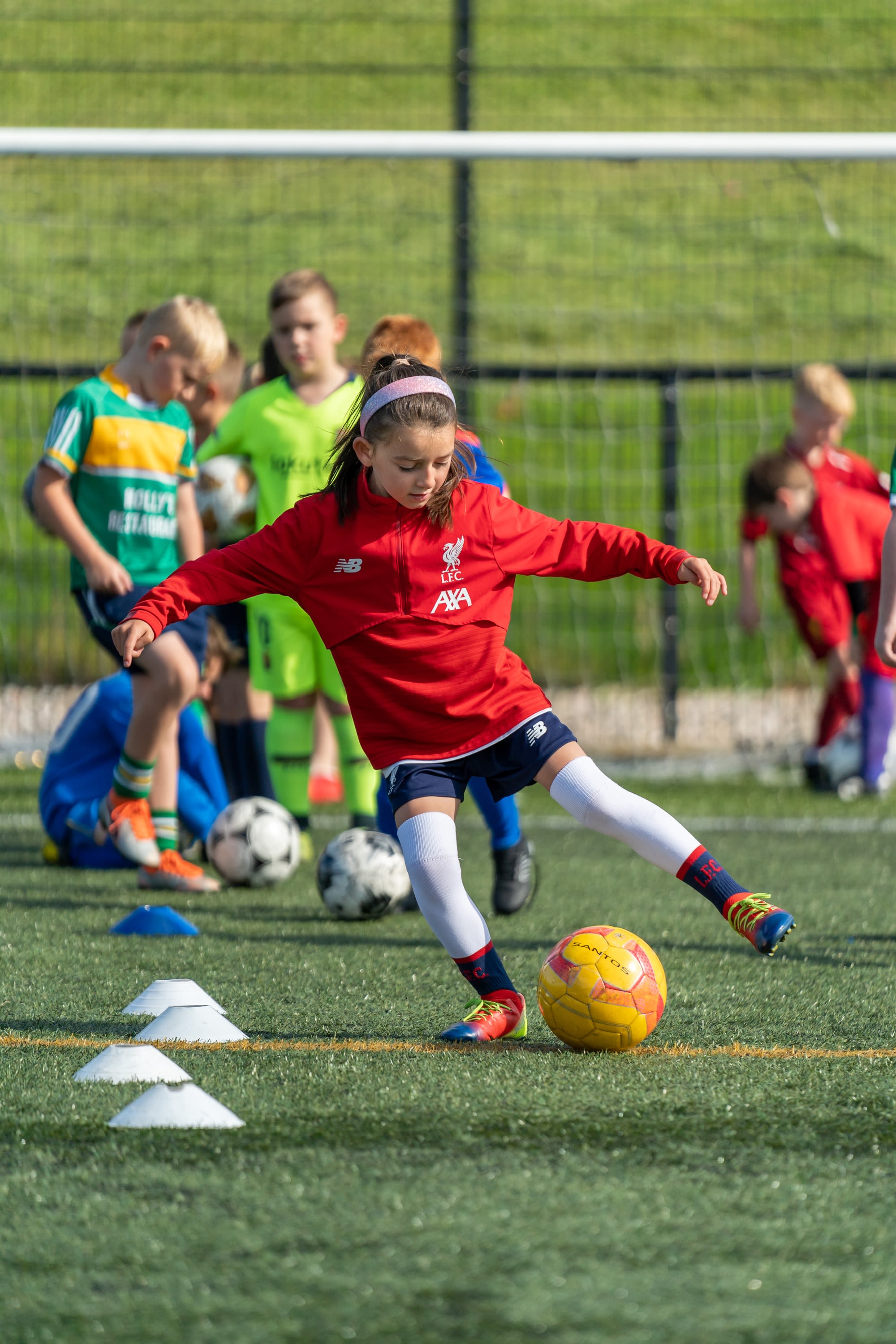
The England Women have inspired several primary and secondary schools to create girls teams, after-school clubs, and participate in initiatives such as the FA's 'Let Girls Play Biggest Ever Football Session'. On International Women's Day, England's 'Biggest Ever Football Session' saw over 285,000 girls training - a stark increase from the 90,000 who took part the year before.
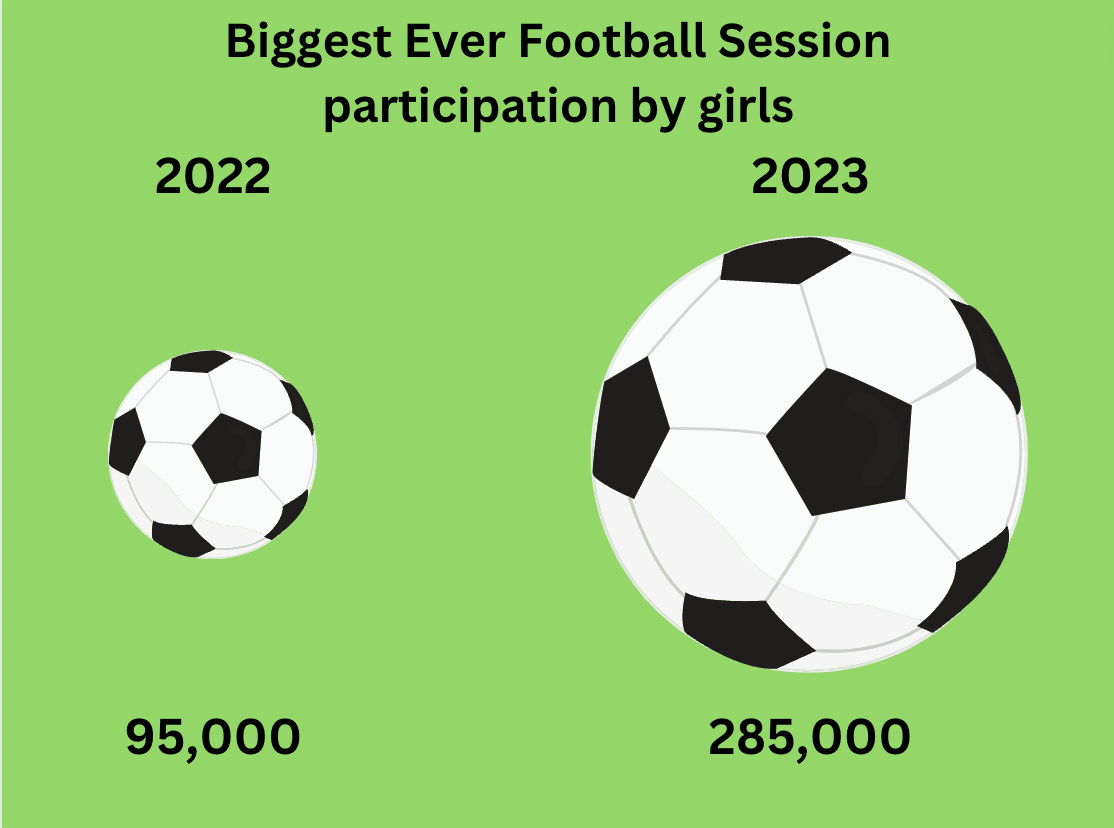
Created on Canva
Created on Canva
Helen Rutter’s daughter’s primary school in Derbyshire had a girl's football tournament against other local schools in the area. Last year, there was not enough interest for each school to have a full team full of girls. However this year, following the Euros, the tournament went ahead - with many more girls eagerly waiting to play at the next tournament.
PE coach Emily Coleman, who teaches and coaches a variety of school-time and extracurricular sessions in Berkshire, says the Euros win has spurred an active interest in the children she works with.
"Most of the kids I work with have been pretty engaged anyway," she explains. "But the win by the women's team gave them something major to talk about in the playground, and for once it wasn't just about the men's World Cup or Premiere League."
Helen echoes this, saying she's glad her daughter is interested in football in 2023 because there's been "no better time" to.
“It’s just perfect timing," she says. "My daughter, being the age she is, could not have had a better time to play football. England winning created this moment, and it has sparked change in the right direction. Attitudes are changing so quickly, in ways we have never seen before. It’s unrecognisable”
"Attitudes are changing so quickly, in ways we have never seen before. It’s unrecognisable"
Background images: Unsplash
